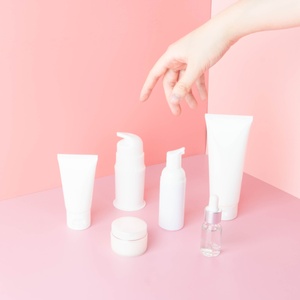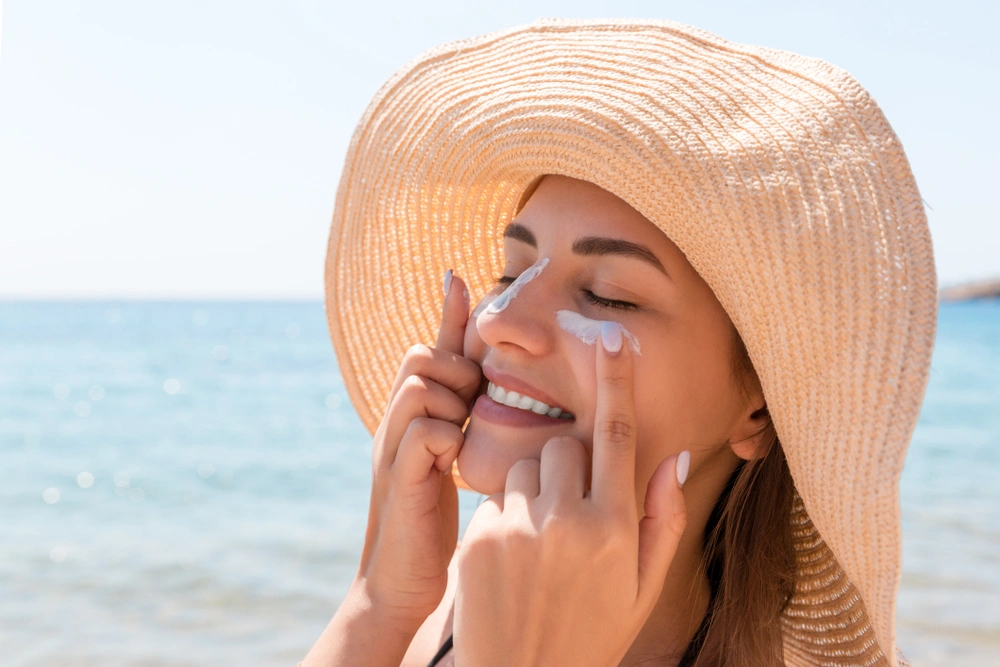Blog
Welcome to FaceForward
Get the scoop on all things beauty, wellness, and skincare.

One poorly kept secret of the skincare and dermatology industry? It’s essentially built on vitamin A derivatives, known as retinoids.
That’s an exaggeration, but retinoids are a staple of modern dermatology, and for good reason: retinoids’ capabilities and benefits are incredibly broad in a variety of skin conditions.
And when it comes to retinoids for your skincare regimen, you’ve probably heard of retinol and tretinoin.
Although both retinol and tretinoin are derived from the same nutrient (vitamin A), they aren't created equally. Knowing the differences between these two skincare ingredients is essential for understanding how you can use them to achieve beautiful skin.
We’ve compiled this article to help you make sense of these top retinoids and how to choose the best for your skin’s needs and sensitivities.
With their introduction in 1971, retinoids quickly became a skincare staple, used for treating everything from acne and psoriasis to skin aging and even some cancers. Retinoids are all derived from Vitamin A, but they’re not all the same.
Retinoids accelerate the turnover of skin cells at the skin surface. In doing so they can help to accelerate healing, reduce fine lines and wrinkles, work to suppress the symptoms of acne, and more. The natural cell turnover process is essential to repairing damage caused by external stressors and inflammatory conditions like acne or rosacea.
Retinoids also help the skin produce an important protein called collagen. Collagen is a supportive fibrous protein found in many areas of the body, including the skin, where it promotes the elasticity and firmness associated with youth and structure. Research indicates that retinoids help prevent these fibers from becoming weak and breaking. They also help repair damaged collagen strands.
Elastin is another contributor to the health and youthful appearance of skin, as it provides elasticity and resilience to tissues and organs and is the pivotal extracellular matrix protein. It works alongside collagen to form elastic fibers that stretch and recoil when the skin encounters external factors—like UV rays—that can cause damage. With the help of retinoids, skin aging can be slowed down and skin improved.
Findings like these continue to place retinoids at the forefront of skincare and the anti-aging space.
Retinoids can help fade wrinkles, smooth blemishes, fight acne, and even heal scars.
Acne occurs when pores become clogged with oil, dirt, and dead skin cells that cause blemishes to form, and it can be made worse by inflammation.
Studies have shown that retinoids help reduce acne and heal acne more quickly. Retinoids are an effective approach to treating acne, reducing the frequency of breakouts, helping to keep pores clear, and possibly reducing inflammation.
As we age and the skin’s cell turnover process slows, it produces fewer new cells and can’t repair damage as quickly. When this happens, the signs of aging become more noticeable. Fine lines and wrinkles appear as collagen and elastin fade in the skin substructure, and wounds heal less quickly.
Research shows that using retinoids regularly can help minimize fine lines and wrinkles while giving the skin a more supple appearance. Remember, retinoids can stimulate the production of new skin cells—an essential part of helping the complexion fight the signs of skin aging, including improving collagen and elastin production. New skin cells replace dead and damaged ones.
Studies have shown that retinoids help prompt collagen production, an essential protein that helps the skin maintain its structure and suppleness. Retinoids helps minimize this by stimulating the production of new collagen fibers that replace damaged fibers to maintain a smoother texture and more even tone.
When pores are clogged, they tend to become stretched and appear more noticeable. They can also seem larger if the skin starts to sag.
These factors can contribute to pores appearing larger or more noticeable, and using retinoids may be an effective way to reduce pore size. Retinoids may also be useful for pushing impurities from the pores to keep them clear and prevent them from becoming more visible.

While retinoids have been known to cause some adverse reactions, these can largely be avoided if you use the right concentration and take the right precautions for your skin.
One of the most common reactions that retinoids can cause is skin irritation, caused by the production and surfacing of new skin cells. Your skin may feel sensitive, irritated, appear dry or red, peel in certain areas, and have a stinging sensation.
To minimize irritation and soothe the skin, dermatologists often recommend using hydrating ingredients like niacinamide or hyaluronic acid alongside retinoids.
You may also need to ease into your new formula, using retinoids once or twice a week at first. As your skin gets used to this new ingredient, you can start using retinoids more often.
When retinoids are applied to the face, the skin can become sensitive to UV radiation and increase the risk of sunburn. Take extra care of exposing skin to the sun when using retinoids by:
If you’re currently expecting or plan on becoming pregnant, it’s recommended that you avoid retinoids—especially those that are prescription-strength.
Some research shows that high levels of vitamin A can be harmful to unborn babies.
Some oral retinoids like isotretinoin have even been linked to birth defects. Although topical forms—like retinol or tretinoin—aren’t known to cause the same level of side effect, more research is needed to determine if they are harmful to use during pregnancy.
Speak to your healthcare provider about using vitamin A derivatives before, during, or after pregnancy to minimize risks.
Although all retinoids are derived from vitamin A, they’re not all made equal. They vary in strength, formulation, and the formulas in which you'll find them.
Two common forms of retinoids are retinol and tretinoin. These are available in a number of topical skincare products and can be used to address different skin concerns.
Knowing what they can be used for is helpful when deciding which retinoid to use. Let’s take a closer look at the key differences.
Retinol is a less potent retinoid and is found in many over-the-counter (OTC) skincare products. OTC retinol is mainly used to improve the appearance of mild to moderate acne, as well as improve overall skin tone and brightness.
Unlike other retinoid products, retinol isn’t a retinoic acid. Retnoic acid is the substance that activates retinoic acid receptors, which are responsible for activating the skin cell generation process. This means that the skin needs specific enzymes to convert retinol into retinoic acid for it to benefit the complexion. This conversion generally means retinol works more slowly than other retinoids, and it may take longer to see results.
Retinol also degrades over time, particularly when exposed to sunlight, meaning that the product becomes less effective the older it gets.
However, retinol is considered a good option for people who have never used retinoids before because it's more gentle on the skin compared to other vitamin A derivatives. This may help minimize the risk of adverse reactions and help the skin build up a tolerance to retinoids before moving on to something stronger.
Tretinoin is retinoic acid, meaning the body does not need to waste time converting it to put it to use.
This makes tretinoin an effective treatment for more severe forms of acne and other inflammatory skin conditions. Because of its potency, doctors may only prescribe it to treat more aggressive forms of acne, although it is an effective treatment for wrinkles and fine lines as well as hyperpigmentation or wound-healing.
A dermatologist or doctor needs to determine the appropriate concentration of tretinoin to ensure you get a formulation that is well-suited to your skin type and condition.
Tretinoin has higher likelihood of effectiveness compared to over-the-counter treatments. You can also expect some harsher side effects when compared to other skin treatments, potentially including itching, dryness, peeling, or stinging.
Unlike retinol, tretinoin is a prescription retinoid, which means a doctor will have to approve the product before you can use it. This also gives dermatologists the opportunity to monitor and manage side effects.
In the comparison between tretinoin vs retinol, the winner depends in part on your personal objectives.
If you struggle with acne, pigmentation, blackheads, wrinkles, or deep lines, tretinoin is a proven option that may work well. You will need a doctor's prescription. For people with more sensitive skin, tretinoin may be more likely to cause sensitivity, though with varying concentrations it’s possible to find a prescription that’s right for you.
Retinol is beneficial as an all-purpose skin treatment for nearly all skin types because it's gentle and readily available compared to prescription tretinoin. However, it’s generally not as effective on serious skin concerns.
You may also see other retinoids in over-the-counter formulas, including
What’s challenging about these over-the-counter products is that ingredients are not precisely the same, and concentrations can mean little when comparing products side-by-side. For example, a .02% percent cream may not be as strong as a 0.02% gel. Furthermore, not all retinol-containing products list the precise concentration.
Your best bet when considering a retinoid-containing product? Talk to a dermatologist.
Whether you choose tretinoin or retinol for your first retinoid, dermatologists agree: Vitamin A derivatives like these are some of the most effective treatments out there for common afflictions like acne, hyperpigmentation, and even to reduce the look of wrinkles and fine lines.
Retinol is generally more gentle but less effective, while tretinoin can work wonders on skin health, though with some initial side effects.
Determining the best skincare treatment or routine for your skin type or condition is no simple task.
That’s why we launched Nava MD’s online dermatology platform: we make access to licensed dermatologists and prescription skincare treatments (if appropriate) accessible from anywhere and at affordable prices, all done online.
Don’t make the vitamin A decision on your own. Get started with a Nava MD consultation today.
This article is intended for informational purposes only and should not be considered medical advice.
Consult a healthcare professional or call a doctor in the case of a medical emergency